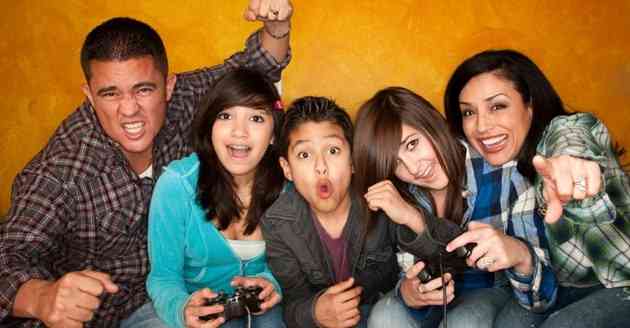Here on GameSkinny, you find a lot of game guides – some that tell you how to get through the hardest bosses or how to unlock great new costumes or move sets, others that help you to choose what games to buy when you’ve got a certain objective or limitation, like a small budget or little time. This guide falls more into that latter category – it will help you to select games for your homeschooled child to play that will fulfill your intended learning outcomes and won’t bore them to tears.
A mistake a lot of people make when they try to meld games and learning is that they go directly for the “educational” games. These aren’t necessarily bad, but when the “learning” is directly in a child’s face, it sometimes feels too much like a lesson for the actual learning to take hold. This guide will give you a few ideas on making learning a more subversive activity – and fun for you and your child.
Establish Your Desired Learning Outcomes
For any of you out there that already homeschool, you probably do so with certain guidelines dictated by your national, state, or local government. Most often, these simply cover the core subjects – and these can be covered in some pretty surprising ways by games that were never created to be learning tools in the first place. But are these the only things you want your child to learn? It’s a good idea to decide in advance when choosing games for educational purposes just what it is you want your child to learn – especially when those goals go above and beyond the obvious core subjects.
This iconic educational star is certainly a great place to start, but with a little imagination, almost any game can really help your learning journey take off.
Keep an Open Mind
If you’re looking beyond Oregon Trail and Where in the World is Carmen Sandiego, then you’ve already taken a step in the right direction, but try taking it a few steps further. There’s no need to limit genre or medium; everything from board games to PC to console titles can have some hidden gems of unexpected and useful knowledge. You just have to look carefully.
For example, many have attempted to teach their children about money with the classic board game Monopoly; while this is a great start for younger kids and a game that is great to play with families, playing with fake money doesn’t always have quite the same impact as the real thing. If your child receives an allowance and plays a game that allows microtransactions, use that opportunity to teach them about budgeting. This can also be helpful if they play tradeable card games like Pokemon, Yu-Gi-Oh!, or Magic: the Gathering (each of which have a digital version of the card game available online, as well).
Remember That Learning Can Happen Anywhere
Be open to the learning taking place elsewhere, too. Maybe the game they’re playing isn’t completely historically accurate, but it inspires them to dig further into a topic (such as with the Assassin’s Creed series, where the stories take place in various historical eras, or the Cooking Mama cooking simulation games, which may get your child interested in cooking – which can lead to learning everything from weights, measures and temperature to baking science).
 If this popular cooking simulator gets your kid hungry to play around in the kitchen, remember he can learn a lot more there than how to follow a recipe.
If this popular cooking simulator gets your kid hungry to play around in the kitchen, remember he can learn a lot more there than how to follow a recipe.
Do MMOs conjure images in your head of angry 12-year-olds screaming obscenities over a headset? Try giving them a closer look. Remember the part about microtransactions teaching money-management skills? It doesn’t end there. If you’ve ever played an MMO yourself and participated in dungeon crawls or raids, you know that these activities require a certain amount of cooperation and coordination with your fellow players, be they part of an established guild or just a random PUG (pickup group). These are valuable social skills that can be learned early – and if your child already loves playing MMOs, consider that they may be getting these valuable skills without feeling like they’re learning at all. If you are concerned for the maturity level and language about a given MMO, keep in mind that there are MMOs made specifically for children – games like Wizard101 or Runescape are great places to start.
Speaking of concerns about games…
Playtest, Playtest, Playtest
If you want to know more about a game, there’s no better way than to play it yourself before you give it to your child. Don’t want to spend the money on a game until you know for certain it’s what you want? Borrow it from a friend if you’re able, or rent it from a video store or a service like Gamefly. If the game is on Steam, take advantage of free-to-play weekends or see if you can Steam Share it with a friend or family member who owns it. As a last resort, if you can’t play it ahead of time, try watching playthrough videos on YouTube to give you a feel for the game.
This isn’t limited to video games, either – local game shops often have a small library of board and card games you can playtest for free. Not only does this give you a chance to try games before you buy them, but it exposes your child to a larger and more diverse gaming community, giving them opportunities to make friends and try entirely new things – a positive experience for the entire family.
 Find out what she’s so excited about – watch her, play with her, and talk to her about the games she loves.
Find out what she’s so excited about – watch her, play with her, and talk to her about the games she loves.
Watch Your Child Play Games – and Have Conversations With Them
Still stumped as to what games to choose? Watch your child play the games they already love. By watching them play, you’ll pick up on the skills they’re already learning, get a feel for the types of games they like, and be better-equipped to find new games they may enjoy.
Don’t be afraid to strike up a conversation with your child about the games they play – by allowing them to talk to you about what interests them most in these games, you both can come to recognize things they’ve learned that neither of you ever expected, and it can lead to an even deeper, richer gaming and learning experience.
 The family that games together, learns together – so get playing!
The family that games together, learns together – so get playing!
Play More Games – Alone and With Your Family
The best way to find games that are good for your child (and by extension, for your entire family) is to play games often enough to recognize that you (yes, you, the parent!) can learn from all kinds of games. As any dedicated gamer knows, playing games alone is a very different animal from playing games together with others – don’t shy away from either experience, as they both have things to teach.
If you’re reading this, you’ve already decided that there are more ways to teach your child than through books and worksheets and dull, droning lectures – you know that learning can be fun, and that it sticks with us best when we enjoy it. Hopefully, this guide has given you what you need to turn what you’ve always thought of as a leisure activity into one of the best educational experiences your child has ever had.







Published: Apr 25, 2015 08:35 pm